‘Music for all’ is a fundamental principle at Oundle. Some 700 pupils learn a musical instrument or participate in choirs, while valued Music Scholars and exhibitioners are given every extra opportunity to excel in their art.

“Participation in instrumental and choral ensembles, both large and small, inspires loyalty, confidence and an appreciation of excellence. We offer opportunities for pupils to perform in a wide variety of styles ranging from the traditional to the modern, with the renowned Chapel Choir and Schola Cantorum maintaining Oundle's strong choral heritage."Mr Quentin Thomas, Director of Music
The Music department is staffed by nine full-time teachers and thirty-eight visiting teachers. The Gascoigne houses some forty teaching and practice rooms as well as a separate recital room, rehearsal room, technology studio and library.
The School’s award-winning radio station, OSCAR Radio, and its studios provide facilities for musicians to record and press their own audio CDs, and also keeps an archive of recitals and performances.
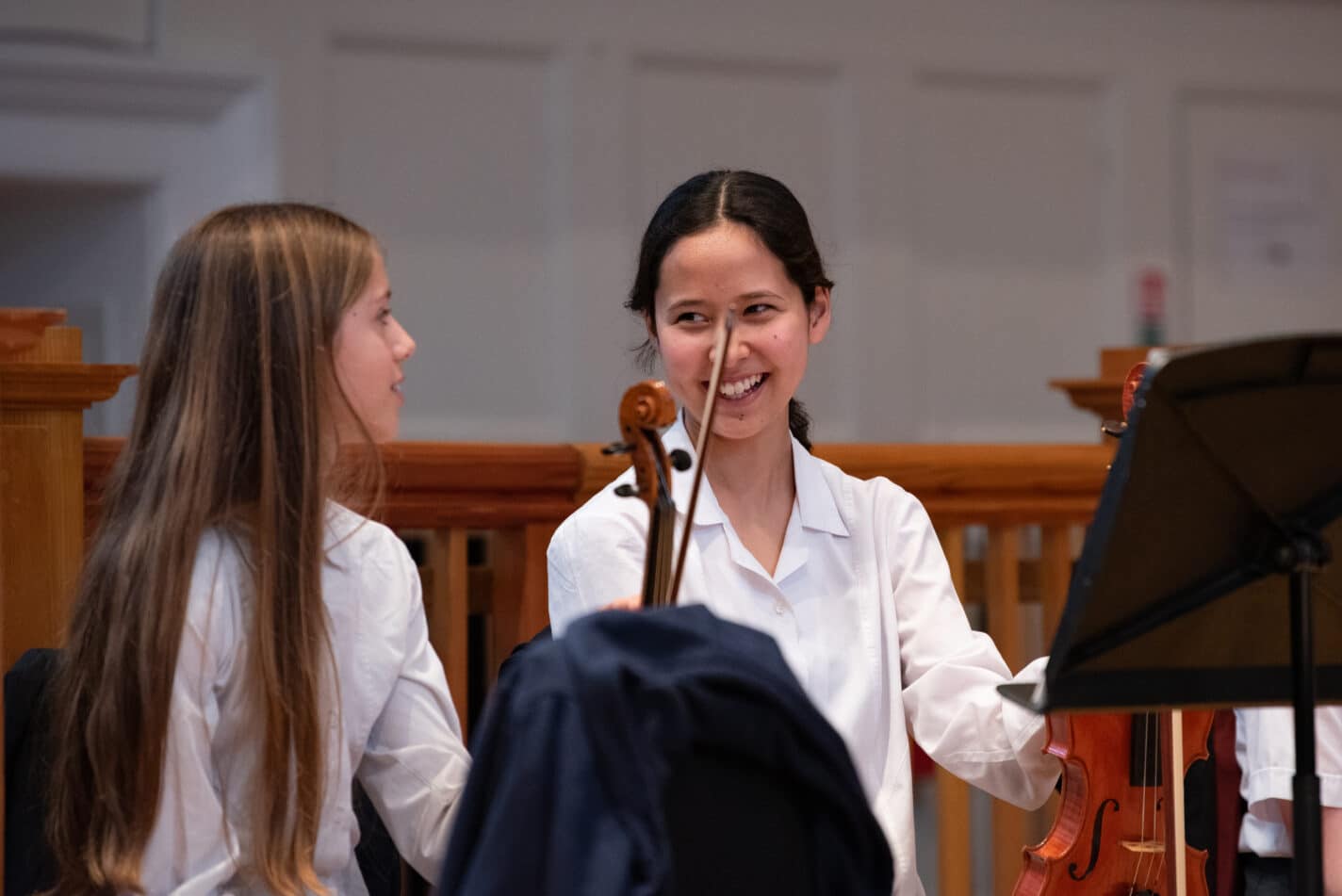
Oundle School enjoys a unique formal partnership with the Royal College of Music whereby talented musicians from Oundle work with RCM professors and students for the mutual benefit of both institutions.
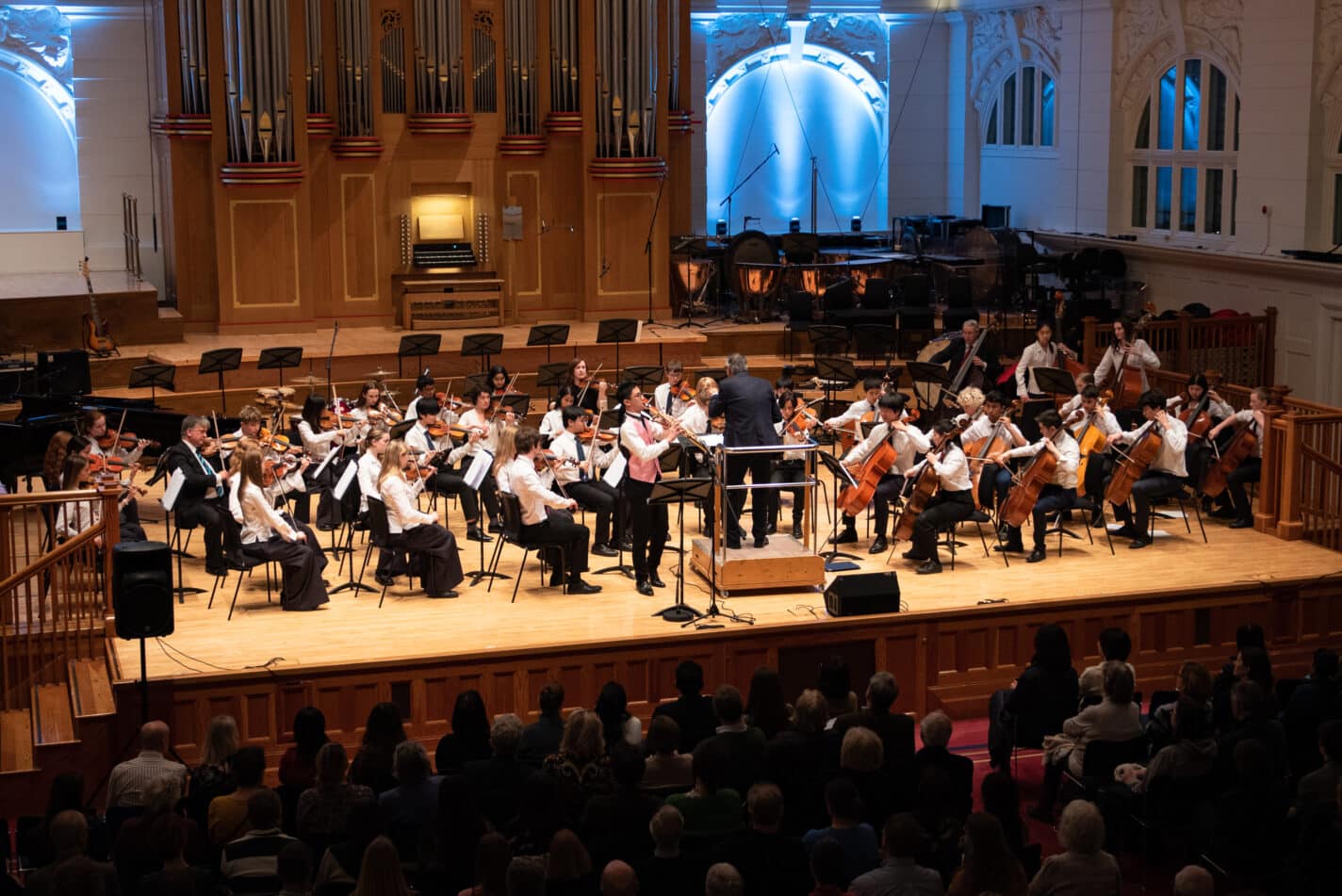
The School offers a wide variety of musical opportunities, including a Chapel Choir, Schola Cantorum, Chamber Choir, Junior Choir, Symphony Orchestra, Chamber Orchestra, Brass Ensemble, two jazz orchestras, a String Orchestra, a contemporary music group, three wind bands, Combined Cadet Force Marching Band, percussion ensemble, Roc Soc, chamber music, pipe band, steel pans and many other ensemble groups.
The Chapel Choir’s regular Sunday services encompass the broad range of the cathedral music repertory, and the various choirs have performed at St Paul’s Cathedral, Westminster Abbey, St George’s Chapel, Windsor, Lincoln Cathedral, Southwell Minster, York Minster, St Martin-in-the-Fields and Merton College, Oxford.
Recent Symphony Orchestra repertoire has included Brahms Requiem and Vaughan Williams Sinfonia Antartica. Concerti with student soloists are a regular feature of the academic year. There is a flourishing chamber music programme, including senior and junior string quartets, wind ensembles and piano trios. As part of the regular sequence of Chapel services, there is an annual orchestral eucharist; recently, Schubert Mass in G and Haydn Missa Sancti Nicolai have been performed.
Musicians gain further experience playing at Combined Cadet Force ceremonies and in stage musicals in conjunction with the Stahl Theatre. A weekly Lunchtime Concert Series provides opportunities for solo and ensemble performance for all age groups, and is popular with members of the town community.
Oundle hosts an annual programme of performances by renowned ensembles, which has included London Brass, English String Orchestra, Orchestra of the Swan, Aurora Orchestra, Endellion String Quartet, Coull 4tet, Skampa Quartet and The Songmen. School musicians are also privileged to attend masterclasses with leading artists who also lead public performances at Oundle.
A number of pupils have been selected for the National Youth Orchestra, the National Children’s Wind Orchestra and the National Children’s Orchestra. Many pupils at Oundle achieve diplomas before leaving and go on to music conservatoires or to instrumental or choral scholarships at university.
All pupils can be invited to participate in the weekly Lunchtime Concert Series on Thursday lunchtimes in the parish church, which is open to the public, offering pupils the opportunity to gain valuable performance experience.
"We are immensely proud of our pupils’ talent and dedication and encourage them to perform regularly in competitions and concerts, both inside and outside the School."Mr Quentin Thomas, Director of Music
As far as possible, lessons take place during School periods on a rotating basis or, in the case of the Sixth Form, during private study periods. Pupils learning a second or third instrument are given such lessons during their free time.
A charge is made for the use of School instruments for lessons and practice. These charges do not normally apply to Music Scholars. Most pupils eventually buy their own orchestral instruments and the Music staff are glad to help in making the right choice.
Group music-making is an important part of musical tuition and pupils learning orchestral instruments will be expected, when appropriate, to take part in ensembles, including the orchestras and Concert Band.
If your child has been learning an instrument at preparatory school and you wish to continue lessons at Oundle, we would advise beginning music lessons straight away and not waiting a term or so ‘in order to settle in’. It is much easier to establish regular practice times if they are routine right from the start. Continuity is highly desirable and pupils need to make arrangements for regular practice during holidays, as well as in term time.
A large number of pupils have successfully passed ATCL, LTCL, Dip ABRSM and even LRSM. There is a full programme of performance classes, rehearsal time with accompanists from the piano department, and classes on writing programme notes, viva voce preparation and reading skills. All candidates perform a full mock examination recital in the weekly Lunchtime Concert Series.
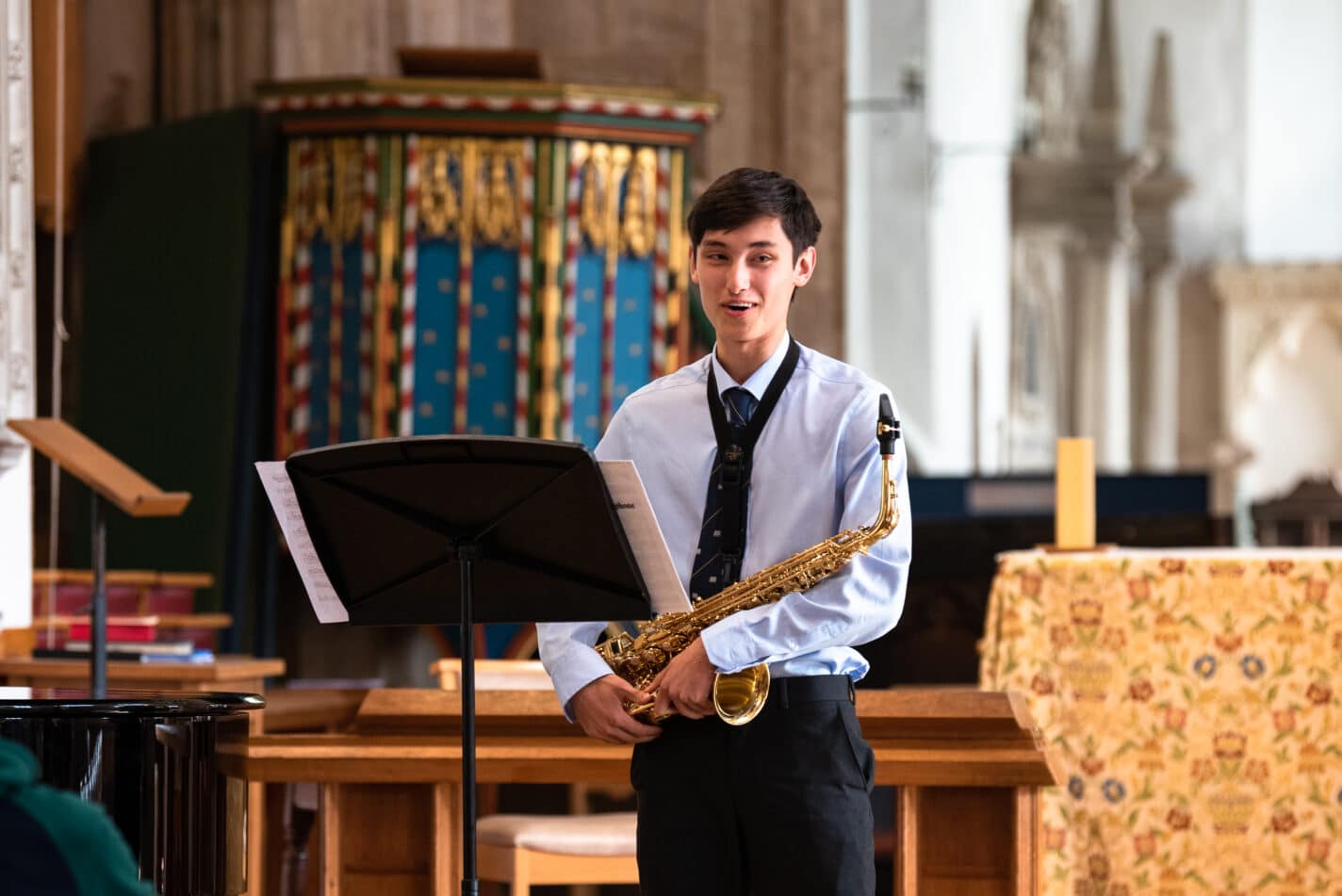
Oundle has been at the forefront of training organists, particularly for organ scholarships at Oxford and Cambridge, for the last twenty-six years. The annual summer school has taken place for the last 30 years, attended by absolute beginners to budding professionals, it is known internationally.
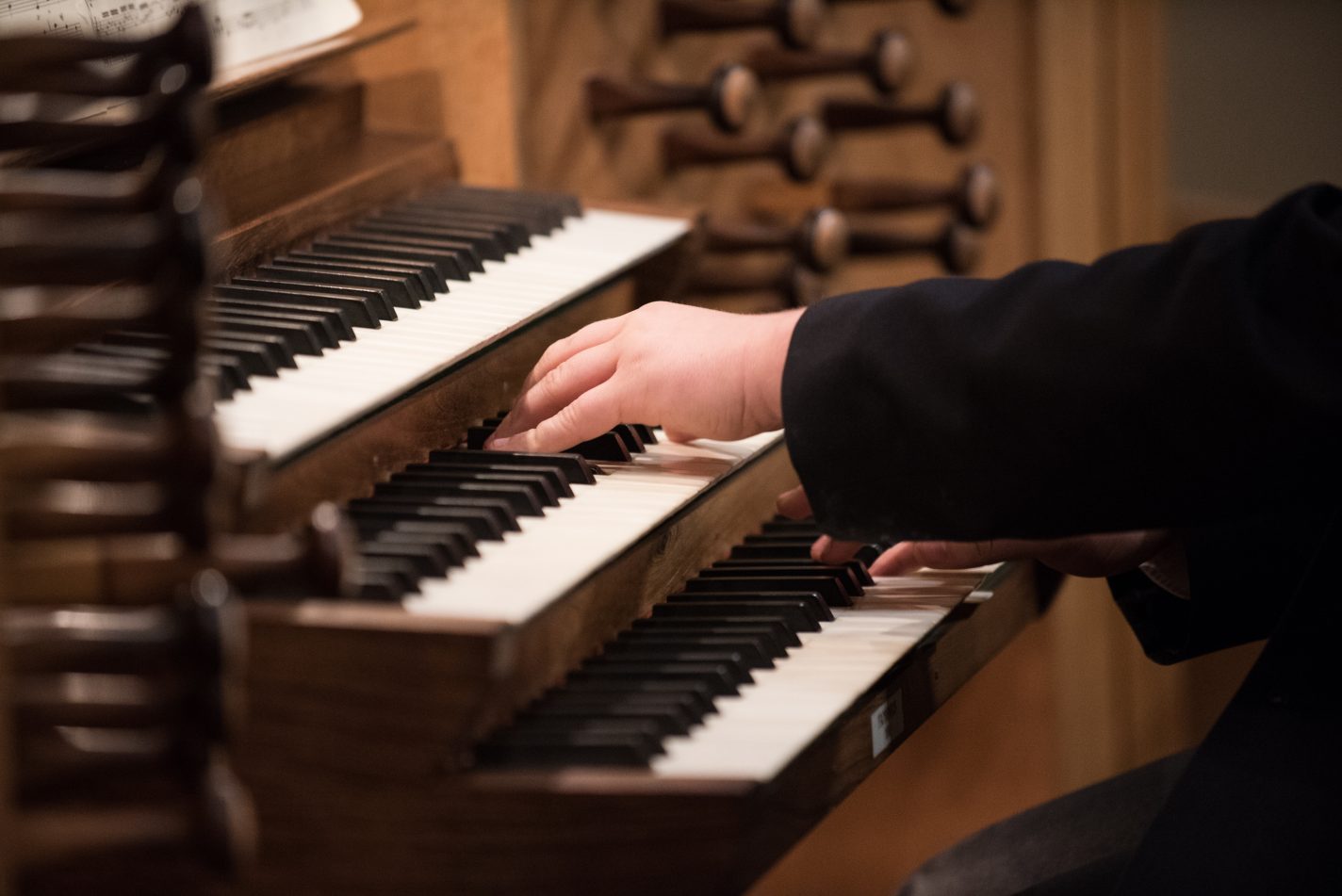
Over the past three years Oundle School string department has been actively involved in an exciting research programme in conjunction with Crissman Taylor Utrecht Conservatoire, developing a new approach to string teaching using ergonomically designed equipment for holding the violin.
The department is at the forefront of working with pupils and colleagues and has been invited to present the research at the European String Teachers Association Conference in Oxford and at the Royal College of Music.
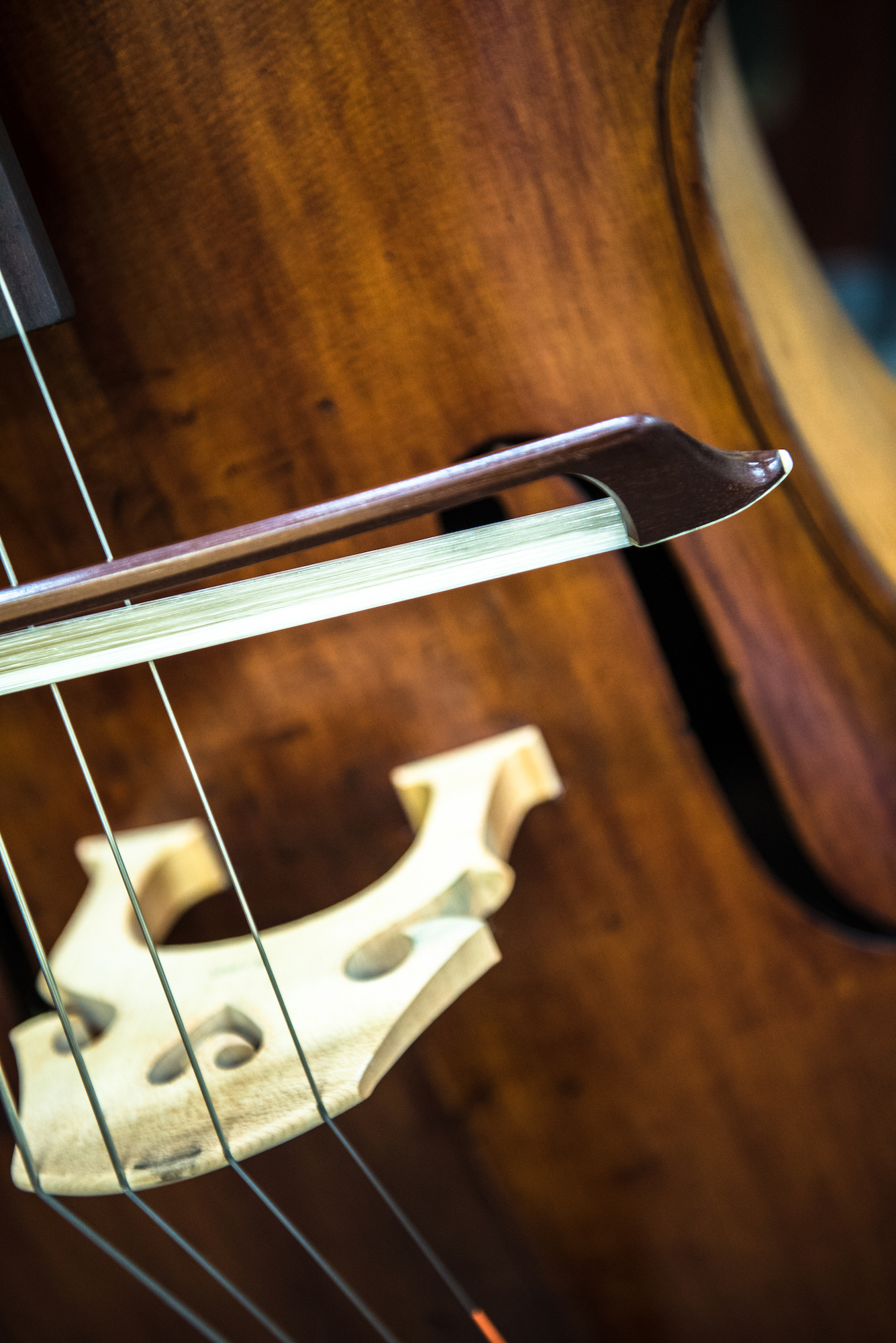
We place great value on our Music Scholars and have a specific structured programme in place to nurture and hone their talents. In place of class Music lessons in the Third Form, all Music Scholars follow a separate course which enables them to develop skills and musical understanding within the timetable.
From the Fifth Form onwards, as part of the Wednesday afternoon option, pupils can choose to focus on their musical studies for the entire afternoon, starting with an Alexander Technique workshop.
There are also regular dedicated performance opportunities for Music award holders.
In the Sixth Form, Music Scholars attend a weekly Music performance extension course to focus on developing individual skills and musicianship. This course is ideal for those with ambitions to develop their full musical potential.